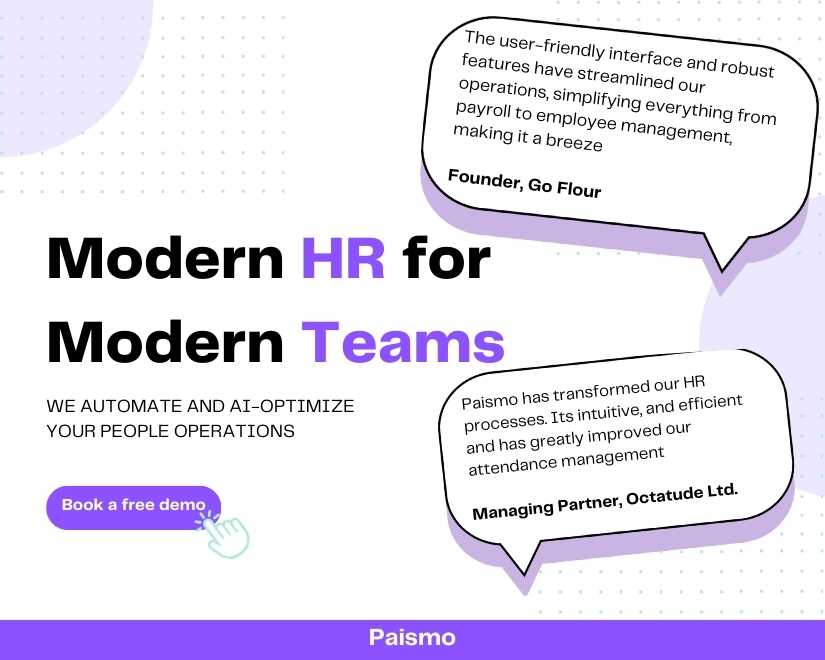Understanding the Notice Period in UAE
In the competitive job market of the United Arab Emirates, the notice period in UAE plays a crucial role in ensuring smooth employment transitions. Far from being a mere formality, the notice period is a strategic process that affects both employers and employees. It defines how professionally and efficiently a job change, resignation, or termination unfolds.
For companies, understanding the notice period in UAE helps maintain workflow continuity, allowing adequate time to find a replacement or redistribute responsibilities. For employees, it provides a fair window to wrap up their duties and prepare for the next career step without disrupting ongoing operations.
Both parties must be fully aware of the UAE Labour Law provisions related to notice periods to ensure transparency, clear communication, and a well-managed transition. In essence, the notice period acts as a bridge between employment and departure, helping both sides part ways smoothly and on professional terms.
This guide will help you understand the importance of notice periods in the UAE, common challenges faced by employers and employees, and how to navigate the process effectively. Let’s dive into the what, why, and how of managing notice periods in the UAE.
What Is a Notice Period in UAE?
The notice period in UAE refers to the legally required duration an employee or employer must give before ending an employment contract. It ensures that both parties have sufficient time to adjust, complete pending work, and prepare for a smooth transition.

Under UAE Labour Law, serving a proper notice period is mandatory, whether the employment ends through resignation or termination. The exact duration is typically stated in the employment contract, but it must comply with the minimum requirements outlined by the law.
In simple terms, the notice period in UAE protects the interests of both the employer and employee, ensuring fairness and professionalism in every job separation.
Notice Period for Unlimited Contracts in UAE
As the name suggests, unlimited contracts in the UAE do not have a defined end date. Under the UAE Labour Law, the notice period for unlimited contracts in UAE is typically 30 days. This means that when either the employer or the employee wishes to end the employment relationship, they must provide at least 30 days’ written notice to the other party.
However, depending on the nature of the role and mutual agreement between both sides, this period can be extended. The specific conditions outlined in the employment contract take precedence, so professionals should always review their agreements carefully.
In some cases, if both parties agree, an employer may also provide payment in lieu of notice, allowing for an immediate end to the contract while still meeting legal obligations. Understanding the notice period in UAE for unlimited contracts helps ensure that both employers and employees part ways respectfully and in compliance with the law.
Notice Period for Limited Contracts in UAE
Unlike unlimited contracts, limited contracts have a fixed duration with a clear start and end date. For these agreements, the notice period in UAE generally ranges from 30 days to 90 days, depending on the terms of the employment contract.
This period gives both the employer and the employee enough time to plan for the end of the contract, whether that means hiring a replacement, completing pending projects, or transitioning to a new role.
HR professionals should make sure the notice period for limited contracts in UAE is explicitly mentioned in the employment agreement. Any variations from the standard timeframe should be mutually agreed upon and documented to avoid disputes later.
Notice Period During Probation in UAE
The notice period during probation in UAE is different from that of regular employment. During the probationary period, either party may terminate the contract with a 14-day notice. This shorter duration allows both the employer and the employee to evaluate whether the working relationship is a good fit before confirming long-term employment.
That said, the specific notice period in UAE during probation can vary slightly depending on company policies or the terms outlined in the employment contract. Employers and employees should carefully review these terms to ensure compliance and prevent misunderstandings.
By understanding how the notice period in UAE differs across probation, limited, and unlimited contracts, professionals can manage employment transitions more confidently and maintain compliance with labour regulations.
What Happens to Final Settlements During the Notice Period in UAE?
Final settlements during the notice period in UAE include all payments, clearances, and obligations that must be completed before an employee officially leaves a company. As per UAE Labour Law, these settlements are a legal requirement and must be processed accurately and fairly by the employer.
Here’s what employers and employees should know about the components of a final settlement during the notice period:
1. Full Salary for the Notice Period
Employees are entitled to receive their full salary during the notice period in UAE, whether they actively work through it or are released early. If an employer decides not to have the employee serve the notice, the company must still pay the equivalent salary, a practice known as payment in lieu of notice.
2. Encashment of Unused Leave
Any unused annual leave must be paid out at the employee’s last drawn basic salary rate. Employers must calculate this balance carefully to comply with UAE Labour Law and avoid disputes over pending leave payments.
3. Overtime Compensation (if applicable)
If the employee has completed approved overtime hours that have not been compensated, these must be added to the final settlement. Keeping clear records of overtime ensures transparency during the notice period in UAE.
4. End of Service Benefits (EOSB)
Employees who have completed at least one year of continuous service are eligible for end-of-service gratuity. While the notice period itself typically doesn’t count toward the EOSB calculation, this depends on what’s stated in the employment contract. Employers can use tools like an end of service calculator UAE to ensure accurate computation in compliance with local labour laws.
5. Deductions for Unserved Notice Period
If an employee resigns and fails to serve the full notice period in UAE, the employer has the right to deduct the equivalent number of unserved days from their final salary. Such deductions should be transparently documented and communicated to prevent any legal or HR conflicts.
6. Recovery of Company Assets
Before processing the final settlement, employers must ensure that all company assets, such as laptops, ID cards, or access tools, are returned. If any items are missing, the employer can deduct the replacement cost as per company policy and the employee’s signed agreement.
7. Clearance and Final Letter
Once all dues are settled, and company assets are returned, the HR department should issue a final clearance certificate and relieving letter. This marks the official end of employment and ensures both parties have completed their legal and administrative obligations during the notice period in UAE.
Become a part of the Paismo community
Paismo is an HR software that can help simplify your HR operations. In today's dynamic economic environment, efficient HR and automated payroll management are no longer a luxury but a necessity. Paismo is a comprehensive solution that transforms traditional HR complexes into streamlined and automated workflows. Paismo and its paired biometric device integration can be used for your business to mark employee attendance and record their timesheets accurately.
Paismo simplifies your tasks with its core HRMS, timesheets, and attendance management, as well as biometric attendance, payroll automation, and leave management system.

Take the first step toward modernizing your HR and payroll processes and explore what Paismo can do for you. Book a demo with our sales team.










